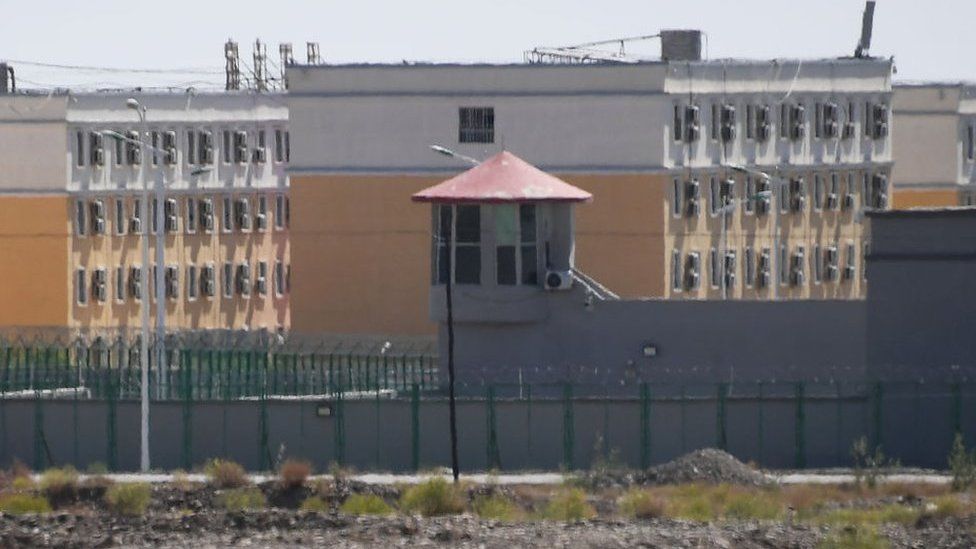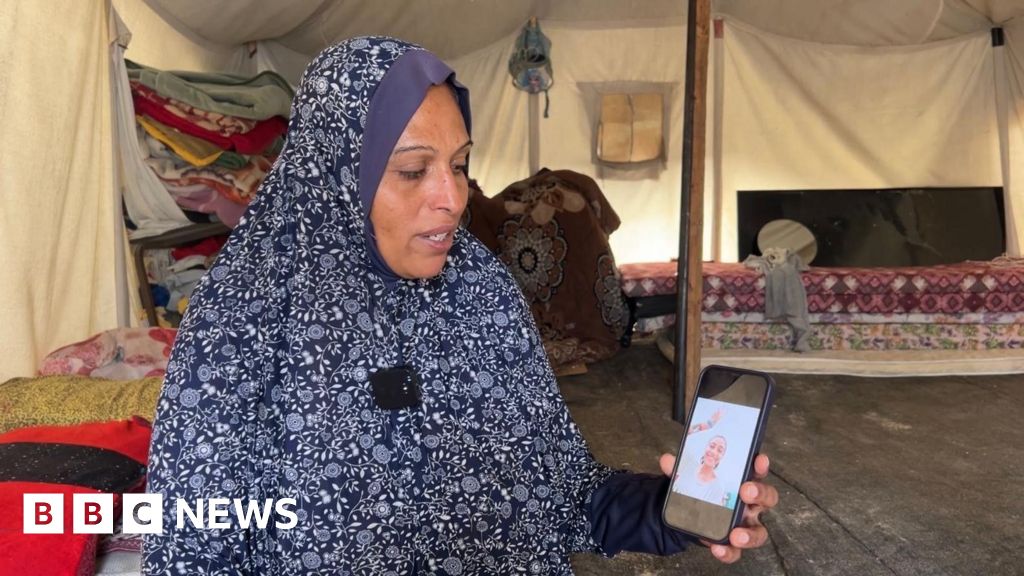ARTICLE AD BOX
By Matt Murphy
BBC News
 Image source, Getty Images
Image source, Getty Images
China is accused of detaining up to a million Uyghurs and other Muslims in detention camps in Xinjiang
The UN has accused China of "serious human rights violations" in a long-awaited report into allegations of abuse in Xinjiang province.
China had urged the UN not to release the report - with Beijing calling it a "farce" arranged by Western powers.
The report assesses claims of abuse against Uyghur Muslims and other ethnic minorities, which China denies.
But investigators said they uncovered a pattern of mass detentions and "credible evidence" of torture.
They accused China of using vague national security laws to clamp down on the rights of minorities and establishing "systems of arbitrary detention".
The report, which was commissioned by the UN's Office of the High Commissioner on Human Rights, said prisoners had been subjected to "patterns of ill-treatment" which included "incidents of sexual and gender-based violence".
Others, they said, faced forced medical treatment and "discriminatory enforcement of family planning and birth control policies".
The UN recommended that China immediately takes steps to release "all individuals arbitrarily deprived of their liberty" and suggested that some of Beijing's actions could amount to "crimes against humanity".
While the UN said it could not be sure how many people have been held by the government, human rights groups estimate that more than a million people have been detained at camps in the Xinjiang region, in north-east China.
Several countries have previously described China's actions in Xinjiang as a genocide.
But Beijing - which saw the report in advance - denies allegations of abuse and argued that the camps are a tool to fight terrorism.
The report was released on Ms Bachelet final day on the job after four year as the UN's high commissioner for human rights.
Her term has been dominated by the accusations of abuse against the Uyghurs.
Ms Bachelet's office indicated that an investigation into allegations of genocide in Xinjiang was under way over a year ago.
But publication was delayed several times, leading to accusations by some Western human rights groups that Beijing was urging her to bury damaging findings in the report.
And even in the final hours before the report was published, China has been putting pressure on Ms Bachelet not to release it.
In a news conference last Thursday, she admitted that she was under "tremendous pressure to publish or not to publish" the report.
But she defended the delay, arguing that seeking dialogue with Beijing over the report did not mean she was "turning a blind eye" to the contents of the report.
Sophie Richardson, China director at Human Rights Watch, said the report's findings showed "why the Chinese government fought tooth and nail to prevent the publication" of the report.
"The United Nations Human Rights Council should use the report to initiate a comprehensive investigation into the Chinese government's crimes against humanity targeting the Uyghurs and others - and hold those responsible to account," she added.
"Uyghurs and other victims have placed their trust in you to report on the extent of the abuses they face," he said. "If you don't stand up for victims, who will?"
And the UK's ambassador to the human rights council, Rita French, said it is "essential for all of us that no state is free from objective scrutiny on its human rights record, and that no state can be allowed to stifle the high commissioner's independent voice".
There are about 12 million Uyghurs, mostly Muslim, living in Xinjiang. The UN said non-Muslim members may have also been affected by the issues in the report.
Image source, Getty Images
Image caption,China's alleged abuses in Xinjiang have generated global outrage since an escalation in 2017
Earlier this year, the BBC obtained leaked files which revealed an an organised system of mass rape, sexual abuse and torture of Uyghur Muslims at a network of camps.
The Xinjiang Police Files, as they're being called, were passed to the BBC and revealed a targeting of the community on orders leading all the way up to Chinese leader, Xi Jinping.
And in 2020, then UK Foreign Secretary Dominic Raab accused China of "gross and egregious" human rights abuses against its Muslim population after a video emerged appearing to show Uyghurs being blindfolded and led to trains.
The footage provoked international outcry, but Liu Xiaoming, then Chinese ambassador to the UK, insisted that there were "no such concentration camps in Xinjiang" while appearing on the BBC's Andrew Marr show.
What does China say?
China denies all allegations of human rights abuses in Xinjiang.
In response to the Xinjiang Police Files, China's foreign ministry spokesman told the BBC that the documents were "the latest example of anti-China voices trying to smear China". He said Xinjiang enjoyed stability and prosperity and residents were living happy, fulfilled lives.
China says the crackdown in Xinjiang is necessary to prevent terrorism and root out Islamist extremism and the camps are an effective tool for re-educating inmates in its fight against terrorism.
It insists that Uyghur militants are waging a violent campaign for an independent state by plotting bombings, sabotage and civic unrest, but it is accused of exaggerating the threat in order to justify repression of the Uyghurs.
China has dismissed claims it is trying to reduce the Uyghur population through mass sterilisations as "baseless", and says allegations of forced labour are "completely fabricated".
China's ambassador: "There is no such concentration camp in Xinjiang"

 2 years ago
25
2 years ago
25








 English (US) ·
English (US) ·